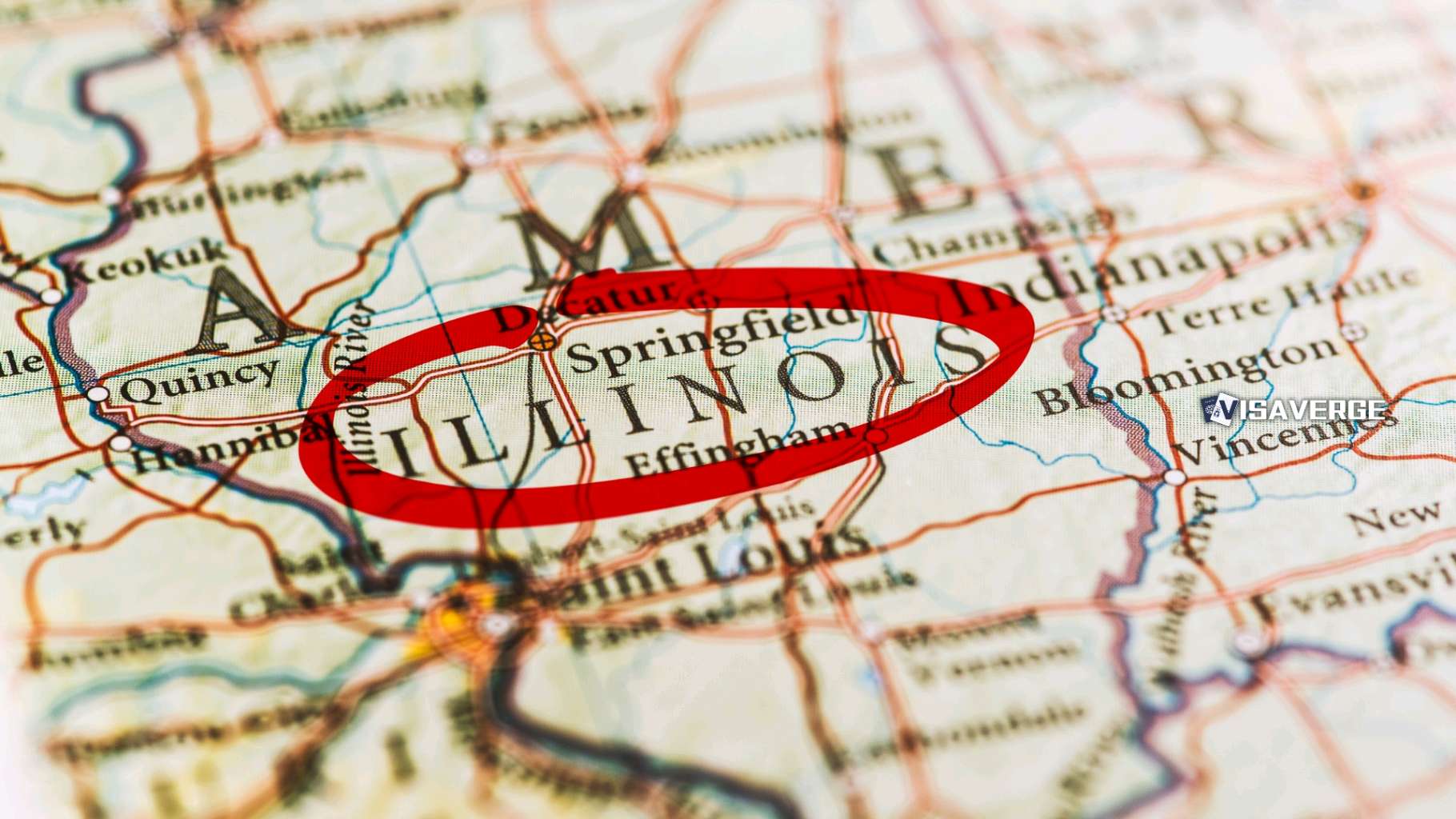Key Takeaways
• Harsimrat Kaur Randhawa, 21, died from a stray bullet at a Hamilton bus stop on April 17, 2025.
• She was an innocent bystander caught in crossfire between a black Mercedes SUV and a white sedan.
• Hamilton Police classified the incident as homicide and seek witnesses, dashcam footage from 7:15-7:45 PM.
A 21-year-old student from Punjab, India 🇮🇳, named Harsimrat Kaur Randhawa, lost her life to a stray bullet while waiting at a bus stop in Hamilton, Ontario 🇨🇦, on April 17, 2025. She was a Mohawk College student, working hard to build a better future for herself in Canada 🇨🇦. This tragedy, as shocking as it is heartbreaking, lays bare the fears that many international students and their families carry when studying far from home. It also sparks bigger conversations about safety, support, and what happens next for immigrants who find themselves suddenly facing such loss.
What Happened in Hamilton, Ontario?

On the evening of April 17, around 7:30 PM, just as the sun was dipping, Randhawa was at a bus stop on Upper James Street near South Bend Road in Hamilton. She was on her way to work—just another normal day for most, but one that no one could have predicted would end in tragedy.
Suddenly, gunfire broke out between two vehicles nearby—a black Mercedes SUV and a white sedan. Video seen by police later showed a passenger in the Mercedes SUV firing at the white sedan. People in both cars were shooting at each other, the kind of violence you never expect to see on a regular city street. As they fired, bullets didn’t just stay between the cars; one stray bullet hit Randhawa in the chest while she simply stood there, waiting for the bus. Emergency crews rushed her to the hospital, but she did not survive her injuries.
Stray Bullets and Innocent Lives
Hamilton Police called Randhawa an “innocent bystander,” making it painfully clear she played no part in the violence. Some bullets even found their way into a nearby home, though, thankfully, no one inside was hurt. It’s a reminder that gun violence does not just endanger those fighting; everyone in the area faces risk. Sometimes, the people most affected are the ones who have nothing to do with the fight at all.
Who Was Harsimrat Kaur Randhawa?
Originally from the Tarn Taran district in Punjab, Randhawa came to Hamilton, Ontario 🇨🇦, about two years ago to study at Mohawk College. Like so many Indian students, she worked hard—not just in class, but at a job—to build a new life and help support her family back home. Randhawa’s family remembers her as dedicated and hopeful, always looking forward to building a future. She was someone’s daughter and someone’s friend, far from home in a new country and working toward her dreams.
After hearing about her death, her family in India 🇮🇳 made a public plea: they need help from the Indian government and Punjab officials to bring her body home for her last rites. It is the kind of help that only governments can offer quickly, and one that families never hope to need.
Official Responses and Next Steps
Hamilton Police quickly classified this as a homicide. They continue searching for the people involved, hoping witnesses or anyone with dashcam video from between 7:15 PM and 7:45 PM can help identify the shooters. Anyone with information is being asked to come forward so justice can be found for Randhawa.
The Indian Consulate General in Toronto 🇨🇦 offered public condolences, stressing that Randhawa was an innocent victim. The Consulate said, “We are deeply saddened by…the tragic death…As per local police, she was an innocent victim…A homicide investigation is currently underway.” Their involvement shows how seriously diplomatic officials take such events, especially when it comes to their citizens living overseas.
Mohawk College, where Randhawa was a student, also made a statement. They offered condolences and opened up support services for both students and staff affected by the news. Losing a classmate hits a school community hard, and Mohawk’s response shows the need to help people process such tragedies.
Wider Concerns: Are Students Safe Abroad?
Randhawa’s story is not the only one. This is now the fourth death involving an Indian student in Canada 🇨🇦 in just four months, with three other students having died from different incidents since December 2024. The news has shocked families back in India 🇮🇳 and made many question the safety of students abroad.
When families send their children overseas for education, they want to trust that their children will be safe. Each new tragedy brings fear closer to home and makes people ask tough questions: Are our children at risk? What can schools, police, and governments do better? Should parents think twice before sending their children abroad?
International Student Life in Canada 🇨🇦
Canada 🇨🇦 is a popular place for international students from around the world, especially India 🇮🇳. Each year, thousands arrive for university or college, drawn by good schools and the hope of brighter futures. For many, life abroad means balancing classes, part-time jobs, and settling into a whole new world. Most never expect to face violence—least of all be caught in the crossfire of someone else’s fight.
After hearing what happened to Harsimrat Kaur Randhawa, an unsettling feeling spreads through international student communities. Many students, especially from India 🇮🇳, may now worry about being in the wrong place at the wrong time, and families will ask about safety on Canadian 🇨🇦 streets at all hours.
How Police and Consulates Respond
When tragedies like this hit, local police, schools, and international officials all need to move fast and support those involved. Hamilton Police made an urgent public appeal for information, showing that every lead could help solve the case. The Indian Consulate General’s rapid expression of condolences and outreach to the family matters—a lot. These steps don’t just offer sympathy; they show families and students that their welfare is taken seriously.
Schools like Mohawk College often activate counseling and support services. For some students, this might be the first time they’ve lost a friend or seen violence in their new country. Support can take many forms: counseling, help with paperwork, help talking to police, or just a listening ear. In difficult times, small acts of help can make a big difference.
How Do Such Cases Affect Immigration Policy and Perception?
On a policy level, these cases sometimes spark debates about gun laws, policing, and international student protections. Families in India 🇮🇳 may pressure their own government to push for strong action. At the same time, Canadian 🇨🇦 officials have to show they are doing everything possible to keep international students safe, because newcomers are vital to Canada’s 🇨🇦 schools and communities.
When deaths among international students happen more than once in a short time, people start to wonder if these are isolated cases or signs of deeper problems. Although Canada 🇨🇦 is still seen as one of the safest countries, repeated high-profile tragedies may influence how families look at safety, and even which countries they trust for their children’s education.
What Happens to Victims’ Families?
For families like Harsimrat Kaur Randhawa’s, the next steps after such a tragedy are heavy and heartbreaking. When someone dies overseas, there are specific rules that decide how their body is returned home, often called “repatriation.” This involves working with local police, consulates, and funeral homes, and the process can be complicated. The family must wait in uncertainty and grief, hoping officials and governments move quickly so they can perform last rites according to their customs.
Consulates, like India’s 🇮🇳 in Toronto 🇨🇦, are usually responsible for helping families through every official and legal step. They deal with paperwork, help arrange transport, and provide updates as police investigations move forward. Sometimes, they also help families with costs or help them understand Canadian 🇨🇦 rules.
Community Support and the Ripple Effect
A tragedy like this also creates a ripple effect—impacting not just one family, but whole communities. Other international students may feel fear and loneliness. Local communities may come forward to offer rides, create safety groups, or demand better street lighting and more police. People sometimes hold candlelight vigils or fundraisers to show support.
Schools, cultural groups, and local businesses might organize events to honor the life of the victim and support anyone feeling unsafe. Every loss reminds everyone how precious life is, and how important it is to look out for one another, especially far from home.
Safety Tips and Resources
For international students and families worried about safety in Canada 🇨🇦, there are some practical steps:
- Always keep emergency contact numbers easily available.
- Be aware of your surroundings, especially in unfamiliar places or late at night.
- Use public transport apps or college-provided shuttles, if available.
- If you see something strange or feel unsafe, call local police. In Canada 🇨🇦, the emergency number is 911.
- Stay in regular touch with family or friends about your whereabouts.
Immigration and Police Support
After such events, it’s normal for students and families to question support systems. The Government of Canada 🇨🇦 provides clear guidance for international students, including information about student visas, safety, and rights. It is important for newcomers and students to review these resources before and after arriving so they know where to turn in difficult times.
VisaVerge.com’s investigation reveals that recent incidents have led to fresh calls for universities and police departments to create better outreach programs for international students. This may include sharing crime alerts, offering language help for speaking with police, and opening doors to mental health support after tough events.
Bringing Community Together After Loss
Harsimrat Kaur Randhawa’s death could lead to more support across both Canada 🇨🇦 and India 🇮🇳. Families, students, and officials may join together to push for safer environments, both in cities and on college campuses. This can mean better street security, more visible policing, and regular check-ins for all students.
When schools and city governments work with cultural organizations, it also helps newcomers find their place, strengthening community bonds and making everyone safer together. The goal, in both Canada 🇨🇦 and India 🇮🇳, is to make sure every student feels supported and can focus on learning, not worrying about safety all the time.
What Happens Next for Hamilton, Ontario 🇨🇦?
The investigation is ongoing, with Hamilton Police asking for help from anyone who may have seen or filmed anything near Upper James Street and South Bend Road East between 7:15 and 7:45 PM on April 17. With both cars involved still unidentified, and the shooters at large, each small clue could help bring justice and peace to Randhawa’s grieving family.
Summary and Reflection
Harsimrat Kaur Randhawa’s story has shocked two countries and forced hard questions about the safety of international students. She was a hardworking 21-year-old, living in Hamilton, Ontario 🇨🇦, studying and working to give her family a brighter future. A stray bullet, fired in anger during a fight she was never part of, ended her life far too soon.
Families sending loved ones abroad now face new fears, and students across Canada 🇨🇦 find themselves wondering how to stay safe. Local police, consulates, and colleges are working hard to offer support and find answers. But every loss is a call for stronger action—to make sure every student, from every country, can focus on their studies, their dreams, and a future that no family has to fear will be cut short by senseless violence.
If you’re a student in Canada 🇨🇦 or a family member with questions, it’s important to stay connected, know your rights, and make use of official resources. To honor the memory of those lost, and to keep hope alive, everyone—students, schools, governments, and neighbors—must work together for safer communities and brighter tomorrows.
Learn Today
Stray Bullet → A bullet that unintentionally hits a person or object not targeted, often resulting from violence in public places.
Repatriation → The official process of returning a deceased person’s body to their home country for burial or last rites.
Consulate → A government office abroad providing support and services to its country’s citizens living or traveling internationally.
International Student → A person pursuing education in a country other than their own, often facing unique challenges and risks.
Homicide Investigation → A formal police inquiry into the unlawful death of a person, aiming to identify perpetrators and achieve justice.
This Article in a Nutshell
In Hamilton, Ontario, student Harsimrat Kaur Randhawa tragically lost her life to a stray bullet at a bus stop. Her death highlights the vulnerability of international students and urges deeper reflection on safety, support systems, and the urgent need for coordinated responses when tragedy impacts immigrant communities pursuing their dreams abroad.
— By VisaVerge.com
Read more:
• Hamilton Restaurant Fined $99K for Immigrant Extortion
• Alabama House Judiciary Committee backs bill targeting immigrants
• Second Student Arrested as Columbia University Faces Federal Oversight
• Columbia University Expels Students Over Last Year’s Building Occupation
• You Might See Donald Trump on New $250 Bill. Here’s Why













